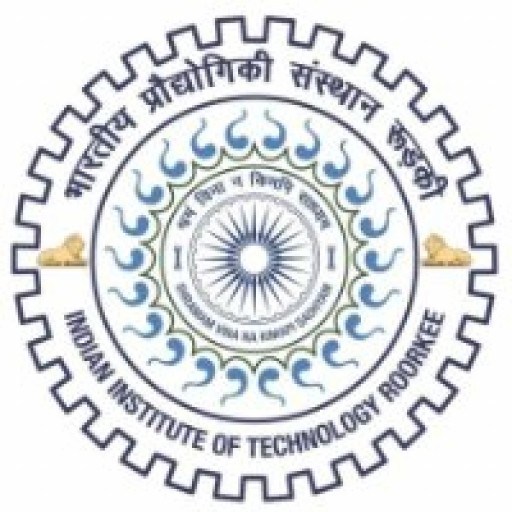The Bachelor of Electronic and Sport Engineering at Griffith University is a comprehensive program designed to prepare students for dynamic careers at the intersection of electronic technology and the rapidly expanding sports industry. This innovative degree combines core concepts of electronic engineering with specialized knowledge in sports technology, providing graduates with a unique skill set suited to modern sports applications, including live event production, athlete monitoring, sports equipment design, and digital sports media. Throughout the course, students develop a solid foundation in electrical and electronic engineering principles, such as circuit analysis, digital systems, signal processing, and embedded systems, complemented by modules focused on sports sciences, sports management, and digital media technologies. The program emphasizes practical learning through laboratories, industry projects, and internships, giving students real-world experience and industry connections. Additionally, students explore emerging fields such as wearable sports technology, sensor networks, and virtual reality in sports, preparing them for innovative roles within sports organizations, broadcasting companies, and electronic manufacturing industries. The interdisciplinary nature of this program ensures graduates are well-equipped to adapt to technological advancements and contribute to the future of sports entertainment, athlete performance optimization, and sports broadcasting. With access to cutting-edge facilities and the support of Griffith's industry partnerships, students are encouraged to engage in research and development activities that address contemporary challenges in sports technology. Graduates of this degree are highly sought after for careers in sports technology, electronic engineering, sports data analysis, media production, and equipment design, making this program an ideal choice for students passionate about electronics and sports industry innovation.
Griffith University grants credit and recognition of prior learning which may relate with prior formal instruction or prior informal and non-formal learning. To learn more, please see the following website:https://www.griffith.edu.au/apply/credit-transfer Charge transferGriffith's advanced Credit Precedent Database allows you to learn what credit conclusions are made previously. All these precedents will give you an idea of what it is possible to expect.https://app.griffith.edu.au/credit-precedent/credit_result.php? Ngpc=5643&SortField=Linked%20Institution%20Name&noresultserror=error.html&search View charge precedents for this particular app
Program requirements for the Bachelor of Electronic and Sport Engineering at Griffith University typically include the completion of core subjects in electronic engineering principles, digital systems, and embedded systems, along with specialized courses in sport engineering technologies such as biomechanics, sports equipment design, and performance analysis. Students are expected to undertake practical laboratory sessions, industry placements, and possibly a capstone project that integrates electronic engineering with sport applications. Prior academic qualifications generally involve a recognised Year 12 or equivalent qualification with prerequisites in mathematics and physics. For international students, English language proficiency tests such as IELTS or TOEFL are required, with minimum scores specified by the university. Additionally, students may need to demonstrate foundational skills in computer programming and data analysis. The program encourages participation in extracurricular activities related to engineering and sports to enhance practical experience and industry readiness. Throughout the course, students are advised to adhere to Griffith University’s academic regulations, including maintaining the required GPA to progress through different stages of the program. The curriculum is designed to prepare graduates for careers in the design and development of electronic systems for sports performance, sports technology manufacturing, and related sectors. Completion of the program typically requires the accumulation of a specified number of credit points over four years of full-time study, including both coursework and project components. Some students may have opportunities for study abroad or industry placements, which are recommended to broaden their practical experience and professional networks. Overall, the program aims to produce graduates with a strong technical foundation, innovative problem-solving skills, and a deep understanding of the unique challenges at the intersection of electronics and sport engineering.
Financing studies for the Bachelor of Electronic and Sport Engineering at Griffith University typically involve a combination of government support, scholarships, and personal funding. International students are usually required to pay tuition fees that vary depending on their residency status, with fees generally ranging from AUD 30,000 to AUD 35,000 per year. Domestic students benefit from subsidies under Australian government schemes, such as the Commonwealth Supported Place (CSP), which significantly reduces the financial burden. Students can access financial assistance through various scholarships offered by Griffith University, which recognize academic excellence, leadership qualities, community involvement, or merit based on specific criteria. Examples include merit-based scholarships that can cover partial or full tuition fees, as well as accommodation grants and research scholarships for postgraduate research students in related fields.
Students are encouraged to explore external funding options, including government grants and sponsorship programs. Australia also offers student loans through income-contingent loan schemes, allowing eligible students to defer tuition payments until after graduation. Budgeting for additional expenses such as textbooks, equipment, health insurance, accommodation, and living costs is also essential. Many students finance their studies through part-time work, either on or off-campus, which is permitted within the visa regulations for international students. Griffith University provides career guidance and job placement services to help students find suitable part-time employment opportunities.
Students are advised to start planning their finances well in advance, applying for scholarships and financial aid early, and considering all available funding sources. International students are recommended to ensure they have sufficient funds to cover at least the first year of study and associated costs before commencing their program. Overall, comprehensive financial planning, utilization of available scholarships, government support mechanisms, and part-time employment opportunities are key strategies for successfully financing studies in Electronic and Sport Engineering at Griffith University.
The Bachelor of Electronic and Sport Engineering at Griffith University is a comprehensive program that combines the fields of electronic engineering and sports technology to prepare students for careers in innovative technological applications within the sports industry. This degree offers a multidisciplinary curriculum designed to develop students' technical skills, theoretical knowledge, and practical experience in electronic systems, embedded systems, sensor technologies, data acquisition, and analysis specific to sporting environments.
Throughout the course, students will engage with subjects such as digital and analog electronics, signal processing, embedded system design, robotics, and telecommunications, all tailored towards sports engineering applications. The program emphasizes hands-on learning through laboratory work, industry projects, and internships, providing students with real-world experience and industry connections. This prepares graduates to work on developing new sports equipment, improving athlete performance through advanced monitoring systems, and designing innovative broadcast and recording technologies.
The program also covers fundamental principles of sport science to ensure students understand the physiological and biomechanical aspects relevant to sports performance enhancement. Additionally, students can explore emerging fields such as virtual and augmented reality, wearable technology, and smart equipment, which are transforming modern sports. The curriculum is regularly updated to keep pace with technological advances and industry needs.
Students will have access to state-of-the-art facilities, including laboratories equipped with the latest electronic testing and measurement devices, simulation software, and prototyping tools. The degree is designed with a focus on employability, aiming to prepare graduates for roles in sports technology companies, athletic organizations, research institutions, and manufacturing industries that develop sports gear, monitoring devices, or broadcast solutions.
Graduates of Electronic and Sport Engineering can pursue careers such as sports technology engineer, biomechanical engineer, embedded systems developer, sports equipment designer, and data analyst specializing in sports performance. The program also provides pathways for further study, including research degrees and specialized postgraduate programs in engineering, sports science, or related disciplines.
Overall, Griffith University's Bachelor of Electronic and Sport Engineering offers a unique combination of engineering expertise and sports science, fostering innovative solutions that enhance athletic performance and revolutionize sporting experiences through technological advancements.










